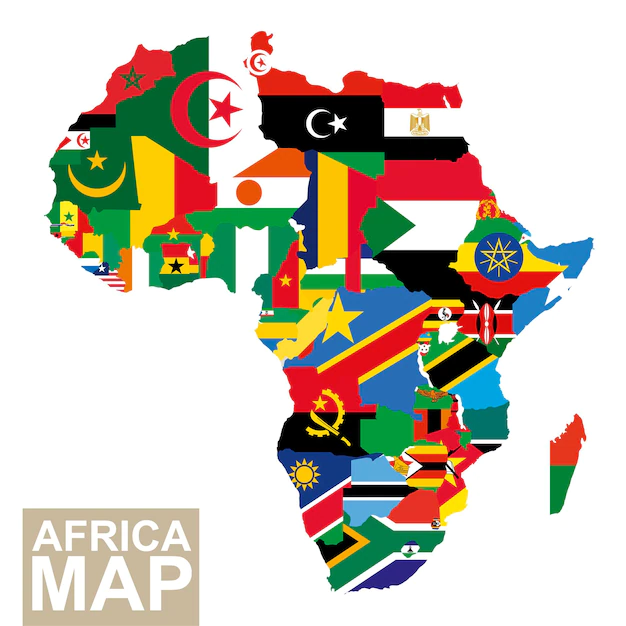On February 7, Kenyan police arrested 41 undocumented Ethiopian migrants and two human smugglers at a house in Nairobi.
The all-male group, which was reportedly on its way to South Africa, will be prosecuted for breaching Kenya’s immigration laws and likely deported to Ethiopia.
Strange as it might sound, these migrants should consider themselves fortunate to have been arrested because their ordeal in Kenya stopped them – at least for now – from embarking on an uncertain and highly dangerous journey.
Between 2020 and 2022, authorities in Mozambique, Malawi and Zambia discovered the bodies of more than 100 undocumented migrants from Ethiopia who have died from hunger or suffocation while travelling clandestinely towards South Africa.
Varsity’s business incubation centre to solve Africa’s problems
U-20 AFCON: Flying Eagles in Egypt to pick World Cup ticket – Bosso
According to the International Organization for Migration, irregular migration from the Horn of Africa to Southern Africa is largely “facilitated by an intricate network of smugglers and traffickers” whose “aggressive attempts to avoid detection by authorities put migrants’ lives in danger.”
As detailed by the African Union, people migrate within Africa due to “a multiplicity of factors that include the need for improved socio-economic conditions through employment, environmental factors, as well as respite from political instability, conflict and civil strife”.
After shouldering enormous personal risks to emigrate, undocumented migrants are confronted with a new set of threats and dangers once they reach their destinations.
In South Africa, for instance, the anti-migrant organisation Operation Dudula is leading campaigns and actions aimed at making the country as hostile as possible for undocumented African migrants.
Migrants in South Africa and beyond are facing such senseless acts of hostility despite Africa’s leading thinkers and prominent politicians repeatedly calling for no African to be regarded as a foreigner anywhere on the continent.
Julius Malema, the firebrand leader of South Africa’s Economic Freedom Fighters party, for example, has frequently expressed this sentiment and called on the continent to collapse its colonial borders.
Similarly, PLO Lumumba, the popular Kenyan public intellectual, has said, “No African country should declare any African persona non grata, it defeats the spirit of African unity.”
Such enlightened and inclusive thinking is admirable, but unfortunately, the political determination to fulfill the widely shared aspiration for a borderless Africa is still inadequate.
In January 2018, the African Union assembly adopted the Protocol to the Treaty establishing the African Economic Community relating to the free movement of people and rights of residence and establishment.
If ratified by every member state, this protocol would allow Africans to work and live in any African country without needing a work permit. Rather disappointingly, however, only 32 out of 55 countries in Africa have signed it to date, and just four – Rwanda, Niger, São Tomé and Principe, and Mali – have ratified it.
The insistent resistance of many African governments to continent-wide free movement, coupled with their impractical, inefficient and at times inhumane attempts to police irregular migration point to a lack of understanding and appreciation of the considerable benefits of migration.
Indeed, migration – irregular or not – is beneficial not only to migrants and their kin but also to the communities hosting them.
Famous South Africans like Albert Luthuli, Dorothy Masuka and Jolidee Matongo came from immigrant families.
And in 2020, award-winning rapper, businessman and boxer Cassper Nyovest revealed that his grandfather had walked from Malawi to settle in Potchefstroom, North West Province.
This is not about South Africa though.
This is about Africa’s catastrophic political inertia.
Every year across Africa, tens of thousands of honest, hard-working people are forced to leave their home countries to escape war, political instability, climate change, bad governance or poverty and build themselves a new life in another African country. Due to circumstances Outside of their control, many of these people are undocumented. They face hostility from authorities and struggle to live their lives with dignity, let alone contribute to their new communities.
This is a massive, unnecessary loss not only for these migrants and their families but also for their adopted countries and the wider continent.
For the benefit of Africa and Africans, so-called “illegal” immigrants must be swiftly recognised, documented and protected from the immeasurable dangers of economic and sexual exploitation, discrimination and organised xenophobia.
Only three per cent of the African population live outside their home countries, so this is not an impossible task.
Last year, despite investing billions of dollars in high-tech surveillance technology, border infrastructure, and land and sea patrols, the United States and European Union both experienced exponential increases in irregular migration.
Africa’s leaders should learn from these failures and accept that in the absence of legal migration pathways accessible to all vulnerable people, including economic migrants, irregular migration cannot be regulated or expunged successfully.
They must avoid politicising irregular migration and instead implement policies that recognise and render useful African predisposition to migrate in both fair and hard times.
In 1963, Kwame Nkrumah, Ghana’s founding president, said, “The forces that unite us are intrinsic and greater than the superimposed influences that keep us apart.”
Sadly, it will take time to unite Africa in practice and establish a visa-free continent. In the meantime, the African Union must move to protect lives and take steps to enable unrestrained migration on a provisional basis.
With adequate political will, Africa is well-positioned to manage migration in a secure, orderly and humane manner.
No African should ever have to die in search of a decent life in Africa.
It is high time Africa demolished its colonial borders.

 Join Daily Trust WhatsApp Community For Quick Access To News and Happenings Around You.
Join Daily Trust WhatsApp Community For Quick Access To News and Happenings Around You.